The review editor over at Tom's Hardware got a nice surprise when an early sample of an Intel Core i7-7700K Kaby Lake processor landed unexpectedly on his desk. The opportunity was taken to give this chip a pretty thorough benchmark and comparison testing session against the chip it will replace, the Intel Core i7-6700K Skylake processor. It is noted that Intel declined to comment upon Tom's Hardware's findings. The Core i7-7700K sample isn't marked as an engineering sample, yet we can't be sure it is a retail sample either.
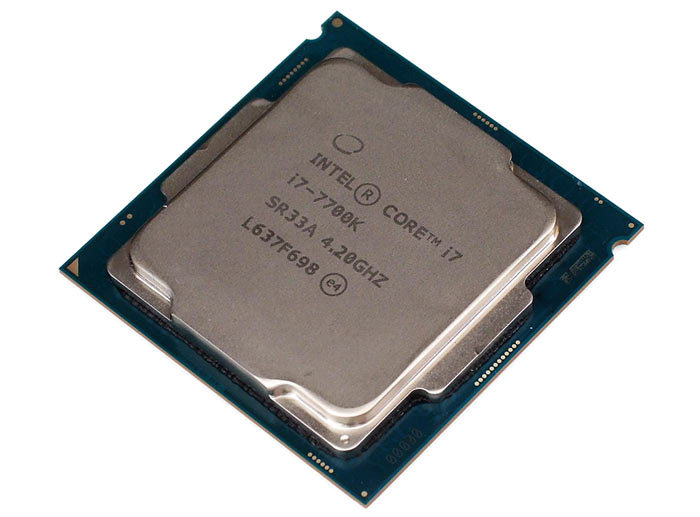
Intel is promising 300-400MHz higher clocks with its 14nm+ process, facilitated by transistor fin optimisation. The sample Intel Core i7-7700K Kaby Lake tested had base/boost frequencies of 4.2GHz/4.5GHz respectively. The predecessor i7-6700K offered a default base/boost of 4.0/4.2GHz. However the Kaby Lake chip is rated at 95W TDP compared to the 91W Skylake part. Below you will find power consumption and overclocking charts from Tom's Hardware tests.
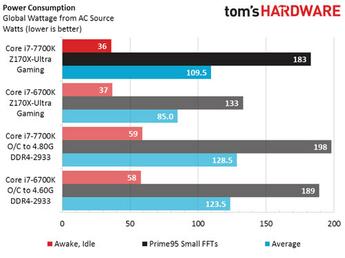 |
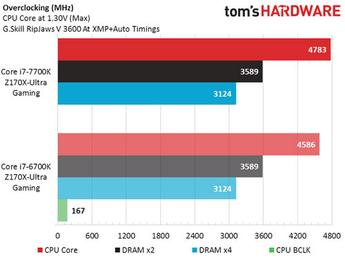 |
On to the benchmarks… Editor Thomas Soderstrom went through various synthetic benchmarks, 3D gaming benchmarks and timed mixed task benchmarks to check out the bottom line for the King of Kaby Lake - if it shows worthwhile performance gains. Flicking through the various results I saw slight gains on most benchmarks. You can see the whole lot of them on page 2 of the review here. I've chosen just the Adobe Creative Cloud 2.0 timed test to reproduce below, as a typical and useful real-world reference.
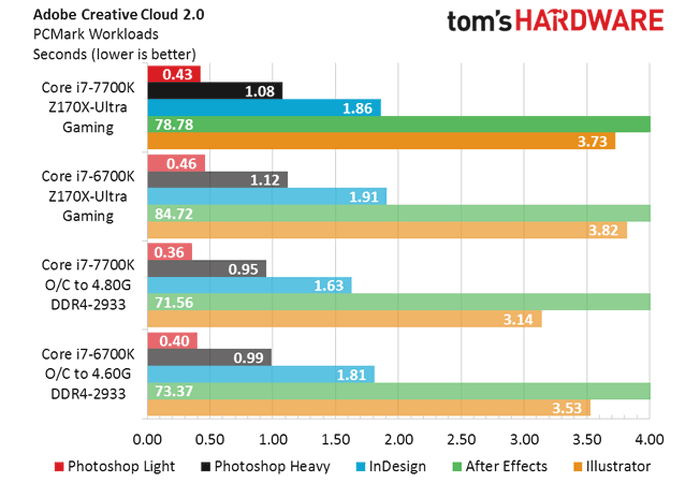
The review concluded with temperature and efficiency measurements. This was a particularly disappointing area of the review for the Kaby Lake Core i7-7700K, with the Skylake chip running much cooler when put under duress. Further damning results came from efficiency comparisons where the out of the box fresh i7-7700K used up to 28 per cent more power for an average 3.6 per cent performance gain.
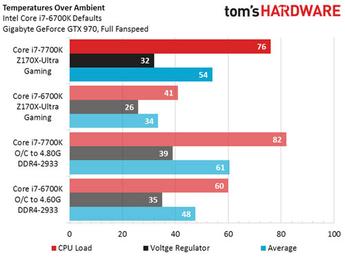 |
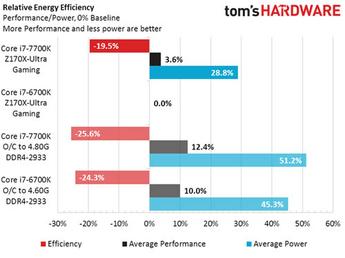 |
The test system used a Gigabyte’s GA-Z170X-Ultra motherboard with the latest Kaby Lake supporting BIOS. G.Skill DDR4-3600 modules were installed and the air cooling of the CPU was taken care of by a Noctua NH-U12S (testing a beefier NH-D14 saved a mere 3°C on the Kaby Lake temps).
At the end of the day these are early numbers, albeit from a trusted source. The Z270 platform and newer BIOS updates for 100-Series motherboards of various brands could make some telling difference to Kaby Lake benchmark figures.













